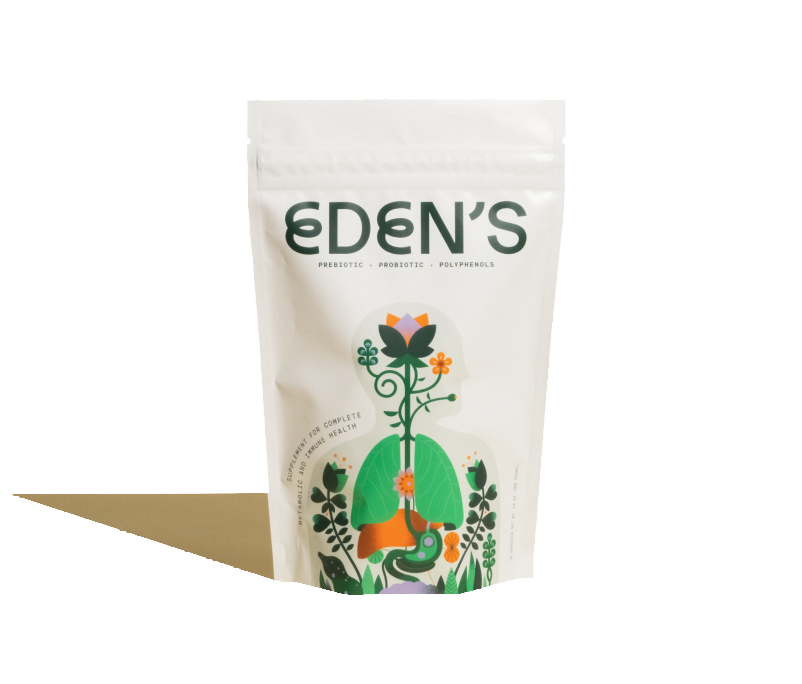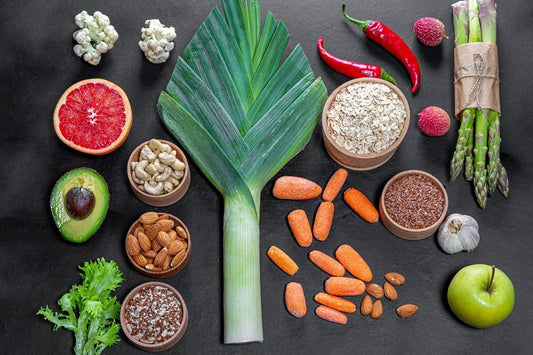
Bloating can be a discomforting and often persistent issue, but understanding its causes and implementing effective strategies can help you banish it for good. This article delves into the various aspects of bloating, from dietary influences to lifestyle factors, and offers practical advice on how to alleviate and prevent it. Through dietary adjustments, physical activity, supplement support and preventive measures, you can take control of your digestive health and enjoy a comfortable, bloat-free life.
Key Takeaways
Identifying and avoiding foods that trigger bloating is crucial; this includes eating slowly to reduce air intake and incorporating anti-inflammatory foods.
Regular moderate exercise can enhance digestion and prevent bloating by facilitating the release of trapped gas in the digestive tract.
Incorporating anti-inflammatory ingredients and probiotics through diet and supplements can help manage bloating.
Adopting a balanced diet, engaging in consistent physical activity, and managing stress are key preventive strategies for long-term control of bloating.
Lifestyle changes, such as mindful eating and post-meal activities, play a significant role in reducing the occurrence and severity of bloating.
Understanding the Underlying Causes of Bloating
The Role of Diet in Bloating
Diet plays a pivotal role in both contributing to and alleviating bloating. Certain foods can trigger bloating, while others may help soothe the digestive tract. An imbalance of salt and water often leads to a bloated feeling, with processed foods and high sodium intake exacerbating the issue.
-
Foods that commonly cause bloating include:
Dairy products
High-sodium processed foods
Certain vegetables like onions and garlic
Sweeteners and chewing gum
Conversely, incorporating foods such as celery, fennel and ginger can aid in reducing bloating symptoms. It's essential to identify personal triggers and adjust the diet accordingly.
Hormone fluctuations and gut health are often the root cause of bloating, with estrogen levels playing a significant role during perimenopause.
Digestive System & Gut Health
The equilibrium of our digestive system is pivotal to gut health. Disruptions in this delicate balance can lead to discomfort and bloating. Regular exercise, dietary choices and supplements play a crucial role in maintaining this harmony.
Incorporating probiotics and fermented foods into your diet supports a robust gut microbiome. These beneficial bacteria are essential for digestion and overall well-being.
Avoid sugar-free sweeteners like sorbitol
Reduce processed foods
Exercise regularly
Add a daily probiotic-rich supplement like Eden's
A well-functioning digestive system is the cornerstone of bloat prevention. Ensuring regular movement through the system is key, not just for alleviating symptoms but for resetting the gut health baseline.
The Impact of Lifestyle Factors
Lifestyle choices play a pivotal role in the occurrence of bloating. Stressful environments and multitasking during meals can lead to hurried eating and increased air intake. This is often a common yet overlooked cause of bloating.
Exercise is not just beneficial for overall health but also for reducing bloating. Regular physical activity aids in maintaining gut motility and can prevent the discomfort associated with a sedentary lifestyle. Incorporating activities like swimming, Pilates, or daily walks is crucial.
Making conscious lifestyle adjustments is essential for managing bloating. Simple changes, such as reducing distractions during meals and increasing physical activity, can have a significant impact.
Here are some lifestyle factors to consider:
Avoid multitasking while eating to improve digestion.
Engage in regular physical activity to enhance gut health.
Recognize the importance of stress management in digestive wellness.
Dietary Adjustments to Alleviate Bloating
Identifying and Avoiding Trigger Foods
To combat bloating, meticulous identification of dietary culprits is essential. A food diary serves as a powerful tool, correlating consumption with symptoms. How to get rid of bloating hinges on recognizing and eliminating these triggers.
The process is straightforward: log every meal, note the timing, and track the onset of bloating. Patterns will emerge, pinpointing problematic foods.
Common triggers include:
Dairy
Carbonated drinks
Artificial sweeteners
High-FODMAP foods
Upon identification, systematically exclude these items from your diet. Observe changes and adjust accordingly. This methodical approach can lead to significant relief from bloating.
The Benefits of Eating Slowly and Mindfully
Eating slowly is not just about savoring each bite; it's a strategic move for digestive wellness. Chewing thoroughly reduces the workload on your digestive system, facilitating a smoother digestive process.
Digestion starts in the mouth, and by eating mindfully, you're less likely to overeat. Being present with your food allows you to recognize fullness cues, preventing overconsumption that often leads to bloating. Here's how you can start:
Focus on the texture and flavor of each bite.
Put down utensils between bites to pace yourself.
Avoid distractions like TV or scrolling on your phone during meals.
By adopting a slower pace of eating, you encourage a more efficient and comfortable digestive experience.
The connection between eating pace and metabolism is also noteworthy. A leisurely meal can actually speed up your metabolism, contributing to better weight management and reduced bloating.
Incorporating Probiotics and Anti-inflammatory Ingredients
Probiotics and anti-inflammatory ingredients play a pivotal role in mitigating bloating.
Probiotics, the beneficial bacteria in our gut, play a pivotal role in maintaining digestive health. Regular intake of probiotic-rich foods like yogurt, sauerkraut, and kefir, or a quality synbiotic supplement, can help maintain a balanced gut flora, essential for digestive harmony.
Probiotics do not just aid digestion; they are foundational for a bloat-free gut.
Turmeric, with its active compound curcumin, is renowned for its anti-inflammatory properties. The numerous therapeutic and health benefits are why we included it in our supplement blend.
More Anti-inflammatory Foods:
Ginger
Omega-3-rich foods (e.g., salmon)
Leafy greens
Berries
These ingredients not only reduce bloating but also contribute to overall digestive health.
Physical Activity as a Remedy for Bloating
The Effectiveness of Moderate Exercise
Moderate exercise is a cornerstone for achieving bloated stomach relief. Physical activity stimulates gut motility, enhancing the digestive process and reducing the likelihood of gas retention. A study in the World Journal of Gastroenterology highlights that individuals who maintain an active lifestyle experience less gas retention, a common cause of bloating.
Engaging in at least 20 minutes of exercise daily is recommended. This can include a variety of activities such as swimming, Pilates, walking, or gym workouts.
Incorporating regular physical activity into your routine not only aids digestion but also promotes overall health. It's not about the intensity; it's the consistency that counts! Whether it's beginner yoga, a jog, or a dance class, the key is to keep moving.
Post-Meal Activities to Enhance Digestion
After enjoying a meal, certain activities can promote smoother digestion and provide gas relief. Walking is a particularly effective method, as it helps to balance blood sugar and increases circulation, both of which are beneficial for digestive health. Here are some simple post-meal activities to consider:
A short stroll around the block
Gentle stretching or yoga poses
Sitting upright rather than reclining
Mindful breathing exercises
Exercise Routines for Improved Gut Motility
Engaging in regular exercise is not just beneficial for overall health; it's also a potent remedy for improving gut motility and alleviating symptoms like an upset stomach and back pain. Moderate physical activity stimulates the digestive system, facilitating smoother transit and reducing the likelihood of bloating.
Exercise can help to reduce bloating by speeding up the release of air bubbles from your digestive tract.
Incorporating specific exercises into your routine can make a significant difference:
Yoga stretches abdominal muscles, enhancing intestinal movement.
A brisk walk post-meal aids in symptom relief.
Cycling can also ease digestive discomfort.
Including these activities regularly can lead to sustained improvements in digestive health and bloat reduction.
Preventive Strategies for Long-Term Bloat Control
Developing a Balanced and Sustainable Diet
A balanced and sustainable diet is pivotal for long-term bloat control. Incorporate a variety of nutrients to ensure comprehensive digestive support. Focus on soluble fiber, which aids in easing constipation and subsequently reducing bloating. Sweet potatoes, for instance, are an excellent source of this nutrient.
A diet rich in dark leafy greens like spinach and kale, packed with chlorophyll, promotes efficient body detoxification.
Including anti-inflammatory foods such as berries, nuts, and seeds can help manage inflammation, a common contributor to bloating. Foods like strawberries, almonds, and chia seeds are not only nutritious but also bolster gut health.
Embrace slow eating habits to enhance digestion.
Integrate foods with healthy fats, like macadamia nuts, for overall well-being.
Opt for a gut-supporting supplement like Eden's.
The Importance of Regular Physical Activity
Engaging in regular physical activity is a cornerstone of digestive health. Exercise stimulates gut motility, aiding in the efficient movement of food through the digestive tract. This process is crucial for minimizing bloating and maintaining a healthy gut.
Stress Management and Its Role in Digestive Health
The digestive system is particularly affected by the impact of stress. Chronic stress can disrupt gut function, leading to symptoms like bloating. Simple stress-reduction techniques can be instrumental in managing digestive health.
The body's stress response can trigger digestive discomfort, emphasizing the need for effective stress management strategies.
Bloating can be an uncomfortable and persistent issue, but with the right preventive strategies, you can achieve long-term control and improve your overall digestive health. Our supplement offers a wealth of clinically supported solutions, including natural ingredients like guar gum, oat bran, and barley beta-glucan, which have been shown to enhance satiety, maintain healthy blood sugar levels, and support heart and digestive health.
Don't let bloat control your life—try Eden's today to learn more about our effective, science-backed solution to bloat control and start your journey to a healthier gut.
Conclusion
In summary, banishing bloat involves a multifaceted approach that includes dietary adjustments, lifestyle changes and mindful eating practices. While immediate relief is possible, long-term management of bloating requires consistency and a commitment to understanding one's body.
Remember, the journey to improved digestive health is not only about what we eat but also how we eat and live.
Frequently Asked Questions
What are the main causes of bloating?
Bloating can be caused by various factors, including diet (such as consuming trigger foods), digestive system issues, gut health imbalances, lifestyle factors like stress and lack of exercise, and hormonal changes such as those during menopause.
What dietary changes can I make to prevent bloating?
Identifying and avoiding trigger foods, eating slowly and mindfully to reduce the intake of air, and incorporating anti-inflammatory ingredients and a probiotic supplement into your diet can help prevent bloating.
Can exercise really help with bloating?
Yes, moderate exercise can improve intestinal gas clearance and reduce symptoms of bloating. Regular physical activity also promotes gut motility, which can prevent bloating.
How can I maintain long-term control over bloating?
Long-term bloat control involves developing a balanced and sustainable diet, engaging in regular physical activity, and managing stress effectively to support overall digestive health.



